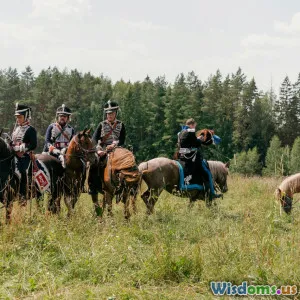
Lessons from Legends: What Myths Teach Us Today
7 min read Explore enduring lessons from ancient myths and legends that guide modern life with wisdom, resilience, and deeper meaning. (0 Reviews)
Lessons from Legends: What Myths Teach Us Today
Myths and legends have been an integral part of human culture for millennia, shaping beliefs, values, and worldviews across civilizations. While often dismissed as mere stories or folklore, their timeless lessons remain remarkably relevant to modern life. These ancient narratives do more than entertain; they offer profound insights into human nature, morality, resilience, and our quest for meaning.
The Power of Myth: Why Legends Endure
From the epic tales of Greek gods on Mount Olympus to the enigmatic sagas of Norse heroes battling cosmic chaos, myths have persisted because they speak to fundamental aspects of the human experience. Joseph Campbell, a renowned mythologist, famously discussed the "monomyth" or "hero’s journey," which is echoed in countless cultures. This universal pattern of adventure, struggle, transformation, and return shows us the archetypal human path.
Legends endure because they encode collective wisdom. For example, the Greek myth of Icarus warns against hubris and overambition—a lesson that transcends time, cautioning leaders, innovators, and individuals alike about the dangers of overreaching.
Lessons in Courage and Perseverance
The Heroic Journey and Personal Growth
Many myths center on characters who embark on challenging quests. Consider the story of Odysseus in Homer’s "Odyssey": a journey marked by cunning, patience, and endurance. Odysseus faces gods, monsters, and temptations but ultimately returns home, transformed. This narrative underscores the value of persistence amid adversity—a lesson applicable to anyone facing life’s unpredictable challenges.
In real-life contexts, this allegory finds echoes in the challenges entrepreneurs and innovators face. The notorious setbacks Elon Musk endured developing SpaceX rockets illustrate a modern heroic journey, where perseverance in the face of failure leads to breakthroughs.
Resilience Through Mythic Trials
In Native American legends, figures like the Cherokee’s "Corn Mother" symbolize renewal after hardship. Such stories remind us that resilience is a shared human quality. They provide psychological comfort, helping communities unite and overcome collective difficulties. Research in psychology supports this; narrative therapy often employs mythic motifs to facilitate healing, demonstrating myths’ therapeutic utility.
Ethical Framework and Moral Reflection
Myths as Moral Compass
Many ancient myths function as ethical frameworks. The story of King Arthur and the Knights of the Round Table, for instance, emphasizes honor, justice, and loyalty. These values remain foundational in contemporary discussions about leadership and community ethics.
Lessons from Mythical Consequences
The story of Pandora’s box offers a reflection on curiosity’s double-edged nature—bringing both hope and hardship. Such myths encourage ethical discernment, highlighting that actions have consequences, a principle deeply embedded in modern legal and social systems.
Understanding Human Nature Through Symbolism
Psychological Archetypes
Carl Jung’s theory of archetypes is rooted in mythological figures: the shadow, the hero, the trickster. Recognizing these archetypes within myths helps us understand facets of our own personality and behaviors. For example, Prometheus’s defiance against Zeus reflects humanity’s rebellious drive for knowledge and freedom, resonating even in contemporary debates about technology and authority.
Cultural Identity and Collective Memory
Legends contribute to shared identity. For example, the Maori’s "Tāwhirimātea" myth explains natural phenomena while affirming cultural values and connection to the environment. As globalization accelerates cultural blending, such myths anchor communities to heritage, fostering pride and continuity.
Applying Mythic Wisdom in Modern Life
Education and Critical Thinking
Educators are increasingly integrating myths into curricula to teach critical thinking and cross-cultural understanding. Using myths encourages students to analyze stories deeply, recognizing their symbolic layers and relevance.
Inspiration for Creativity
Artists, writers, and filmmakers draw extensively from myth. The success of franchises like "Star Wars" and "The Lord of the Rings" testifies to myths’ enduring capacity to inspire narratives that reflect contemporary hopes and struggles.
Personal Reflection and Mindfulness
Engaging with myths can be a practice of mindfulness and self-reflection. Journaling about one’s own "heroic journey" or personal archetypes can foster greater self-awareness and emotional resilience.
Conclusion: The Timeless Guide
Ultimately, myths and legends are not just dusty stories from the past—they are dynamic vessels of wisdom that continue to illuminate the complexities of human life. They teach us how to face adversity with courage, consider the ethical weight of our choices, and understand ourselves and our societies more deeply.
By revisiting these legends with fresh eyes, we unlock a resource that helps navigate the challenges of the modern world with insight rooted in the collective human experience. Whether through heroism, morality, or identity, myths remain indispensable guides that inspire and educate across generations.
"Myths are public dreams, dreams are private myths." — Joseph Campbell
Explore your own legends, and let their lessons enrich the story of your life.
Rate the Post
User Reviews
Popular Posts





















